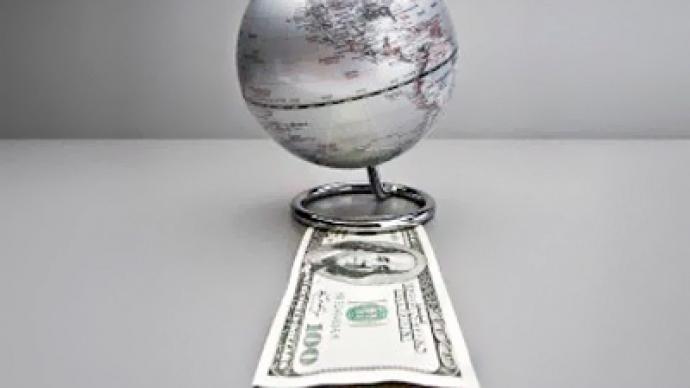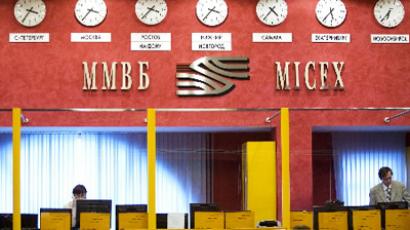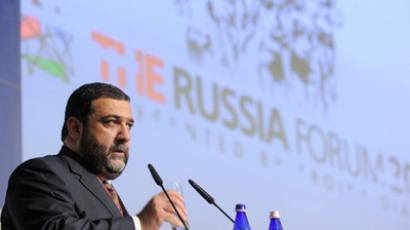Risks, Russia and the global economy

At the Troika dialog Russia Invest Forum 2011 Business RT spoke with Nouriel Roubini, Professor of economics at the Stern School of Business and Chairman of Roubini Global Economics about risks to the global economy.
RT :We are in a post crisis period now, so what are the new risks to global stability? Can you just name several? NR: "One risk is the risk of rising food and commodity and oil prices, that is leading now to rising inflation in emerging market economies, less income in advanced economies, is also leading to social and political instability in the middle east and other parts of the world.The second risk is the amount of budget deficits, and public debt and sovereign debt in advanced economies, and these issues becoming very serious in the periphery of the Eurozone, where there is trouble.And trouble in places like Greece, Portugal, Ireland, Spain can have global consequences.And finally I would say there has been a rise of overall geopolitical risks in the last few months.Turmoil in the Middle-East, North and South Korea, the continued tension between Israel and the Arab states.The issue of terrorism – the tragedy that happened in Moscow just last week, reminds of just how much terrorism is a problem all over the world.So there is a number of geopolitical risks that we have to worry about as well."RT: Before the crisis the world disregarded your warnings.Today you said the glass is both half full and half empty.How come there is this uncertainty about what is happening?NR: “Well things are changing, and some of the things are changing for the better.We learned some of the lessons of the crisis, we are saving more, spending less, reducing debts.And the global economy, now, with the monetary and fiscal stimulus is recovering.Stronger recovery in emerging markets slower in advanced economies.Corporates are profitable, they’ve lots of cash, emerging markets are growing, stock prices are rising – so there are many positives and we have to recognize them.But there are also all these downside risks, we have to worry about geopolitical risk, inflation, weak economic growth in advanced economies, sovereign debt and deficits, the problem of the Eurozone. So, you have to have a fair and balance view of the upsides, and also of the downside.”RT: Are you more of an optimist or a pessimist?NR: “Well I have never been either a pessimist or an optimist, I think I have always been a realist.When I predicted the financial crisis I was being realistic, and being right.Right now I see a picture we I see things are half good and half bad.They are improving and that’s a positive, they are improving in advanced economies and emerging markets.But there are still many risks deriving from private debts, from public debt, from geopolitical risk, from easy money, risks leading to inflation, and things that we have to be concerned about.”RT: Most expert at the forum believe that the future growth is in emerging markets.At the same time they say that there are still some risks and bubbles, would you agree with that? And what are the risks and bubbles in emerging markets? NR: "Yeah, on one side the growth is very rapid in most emerging markets and that’s positive. On the other side, high growth in some cases has become overheating, has led to goods inflation.There is excessive monetary growth, the central banks are not tightening, so in addition to rising inflation there is also a credit bubble.Asset bubbles, we see some of it in real estate in China, in other parts of Asia, some even of the price increase in commodities might become fraught and excessive.And the risk is that if those things are not controlled, because policy makers care more about the growth than inflation, once inflation gets out of hand, they will have to tighten much more monetary policy, and that could lead to a correction that is more of a hard landing than a soft landing of these emerging market economies.So in the medium – long term you can always be positive emerging markets will grow faster than advanced economies, but there are a number of policy challenges that they have to face, to make sure that in this trade off between inflation and growth, they don’t lose control of inflation.”RT: What do you think of Russia?Where do you place Russia among emerging economies?NR: “Well, Russia is a country that has a lot of natural resources, and there is now huge demand for natural resources from fast growing China, India, Asia.It is also a country that there is still a significant amount of human capital, a traditional also, good science and technology. But so far the growth of Russia in the recovery has been disappointing – in part because there were excessive amounts of debt and leverage in the financial system, and parts of the corporate world.So while China, India, Brazil are growing 6 to 8-9% last year the recovery of growth in Russia was only about 4%.I think that not only is there low growth but, compared to other emerging markets, inflation this year may reach double digits or more, and the central bank has been cautious in raising interest rates, and inflation might be going, also, higher.I think that the way Russia has to deal with the fact that if they want to grow fast, but they need to limit inflation, is to make sure that potential growth is higher.And if you make structural reforms, if you free up private enterprise, if you make more efficient state and other enterprises, if you have more incentive to entrepreneurship, then potential growth can be higher, actual growth can be higher and inflation can stay under control.I think the world expects from Russia, an acceleration of a wide range of structural reforms, are going to be beneficial to Russia, and beneficial for the world.”RT: One of your colleagues said today that in 2011 the world will be more volatile than 2010. Would you agree with that? And where do you think we will see correction, in what sectors, and what instruments and commodities?NR: "Well there is always macro volatility, and the sources of the macro volatility are changing, you know.A year ago we were worried more about a double dip recession in advanced economies and deflation.This year we are worried about overheating, maybe rising inflation, and asset bubbles in emerging market economies.We are also worrying more about some of the geopolitical risks, we are worried about some of the excessive increases in commodity prices, and food inflation, and social political instability.So there is always macroeconomic uncertainty and volatility around the world, and the nature of those risks are somehow changing.The crisis started with too much private debt, now we have socialized the losses and we have too much public debt, so from private debt problems the crisis could morph into a sovereign debt crisis.So we still have those risks but they are changing in their nature over time."RT: One of your colleagues said today he believes more in the euro than the dollar, what do you believe in?NR: “Well, you know, there are economic problems in the United States, budget deficits, low economic growth.But my view is that there are also sever problems also in the periphery of the Eurozone – In Grece, in Spain, in Portugal, Ireland and Italy.And these problems in my view are not going to be resolved very fast, very soon.And in my view the Euro should be weaker, rather than stronger, in order to restore some of the lost competitiveness of the countries in the periphery.So over the medium term I would be more Euro bearish compared to the dollar, because I think that the weakening of the Euro is one of the ways in which the periphery is going to restore its growth and competitiveness."













